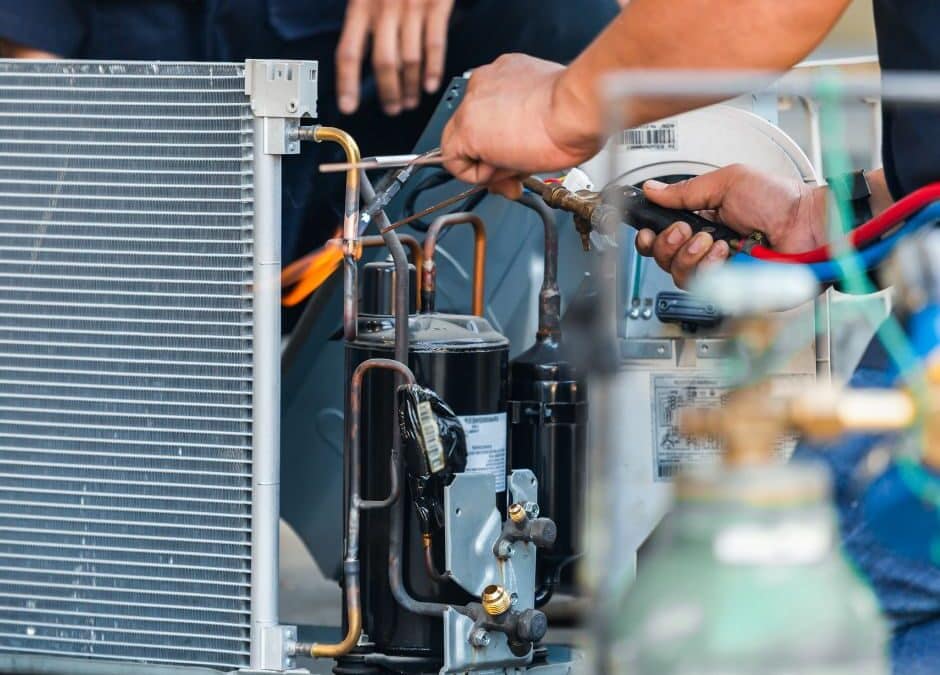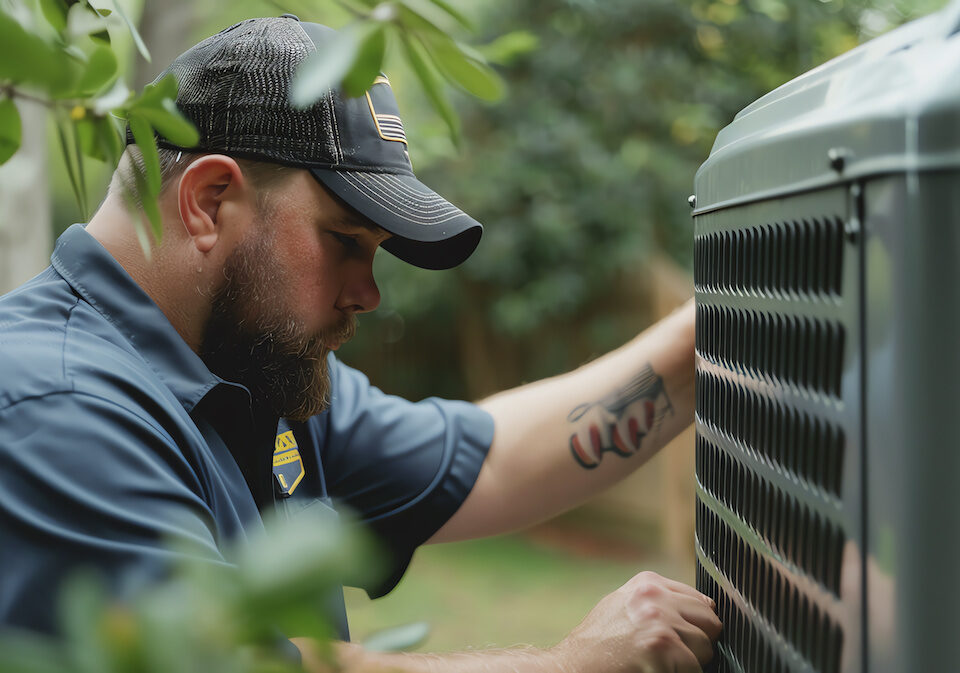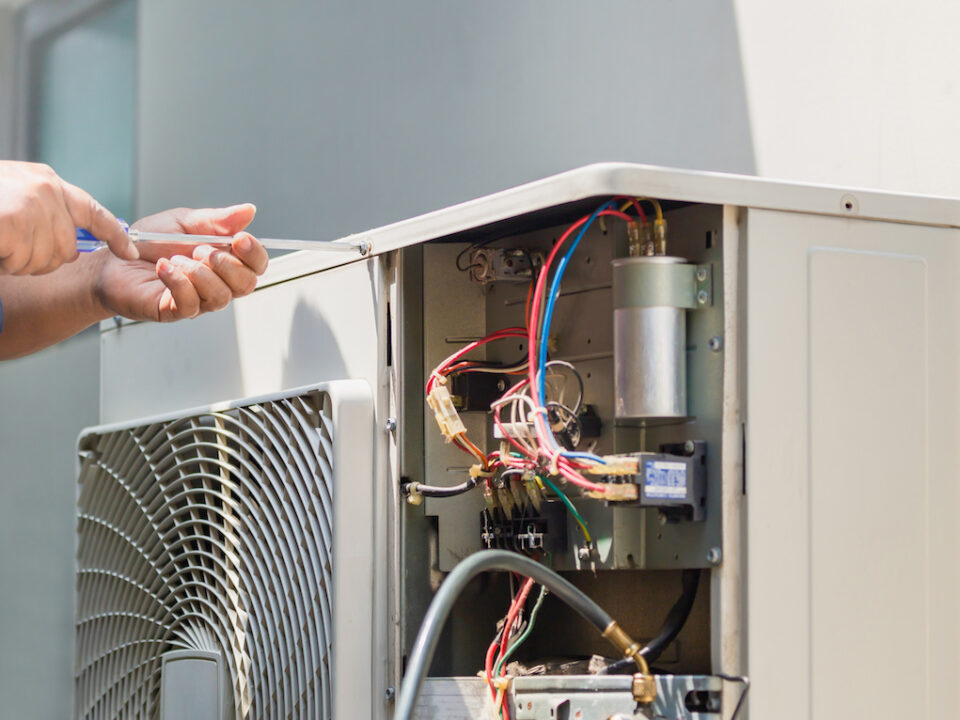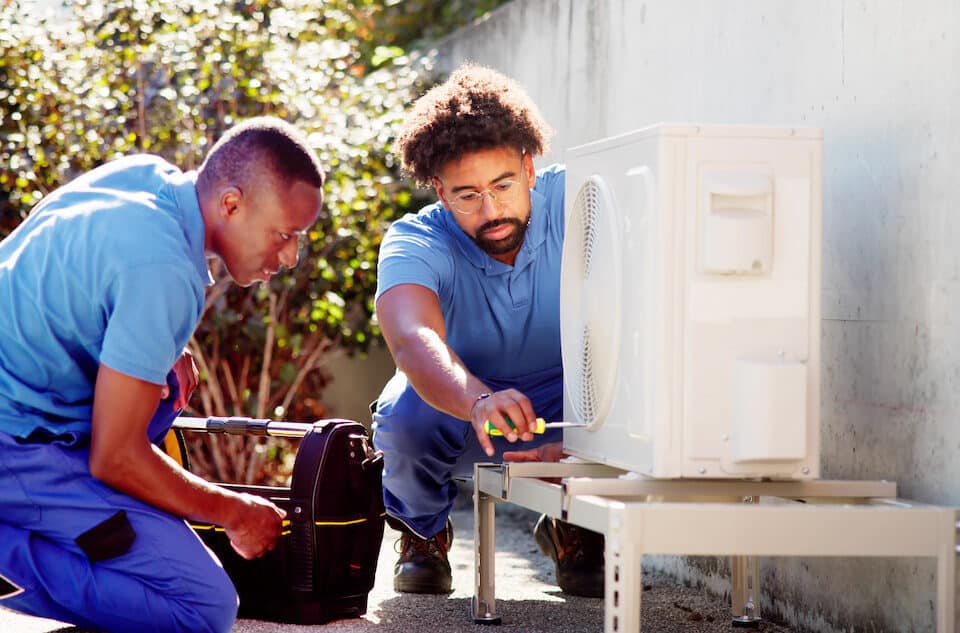Why is My AC Turning On and Off?

One moment the house is hot, and the next, you are freezing. The struggle is real! TRUST Heating and Air is here to help you determine why your AC is performing as it is. You see, there is something called short cycling that could be going on with your HVAC system. This is typically why your unit turns off and on repeatedly. Along with many other reasons, let’s go over a few if you are racking your brain to figure out, “why is my AC turning on and off?”
Reasons Your AC May Be Turning On and Off
Having any kind of major work done on your home, especially when it comes to heating and cooling, is an impactful investment and decision. Our team never takes that lightly. TRUST Heating and Air guarantees customer satisfaction and more.
1| Leaks From Refrigerants
Refrigerant is a liquid and gas combined element that works to remove the heat from your home’s air during the process of cooling. The refrigerant and the compressor are partners and work together to circulate your unit’s refrigerant by converting it from liquid to highly pressurized gas.
The same process happens when you have normal refrigerant levels in your system and continue to work to stabilize the pressure in your system.
If you notice your refrigerant has a leak, the system’s pressure will lower and will alarm the low-pressure switch that’s located at the compressor and turn off your AC unit. And when it shuts down, it turns off the whole system.
What to do first- the first thing you will want to do when this problem arises is to contact an HVAC professional from TRUST heating and AC. They will be able to confirm or deny if you have a refrigerator leak.
If you do have a leak, the trained professionals at TRUST AC will fix the leak and give your AC unit refrigerant and a recharge.
The step above is kind of like when the AC in your car goes out. But this kind of air conditioner refrigerant for your AC unit should only be handled by a trained professional because it is a harmful substance.

2| Lack of Air Flow
Your AC unit works to cool your home by removing the warm air, cooling that air down, and then blowing it back into the different areas of your home. This whole process relies on having enough airflow to make it work. And if your unit does not have enough airflow, it cannot cool your home.
If something is blocking the airflow to your home, your AC unit will now start to go into overdrive to try to produce more air and make up for it. Most of the time, this issue will cause your AC system to overheat.
When the AC unit becomes overheated, it will shut down the whole system to give itself a chance to cool off. When the system has cooled off, it will turn back on and create the cycle of on and off again, known as short cycling.
So, you may be wondering what causes airflow issues? Let’s look below to see what the common problems are.
Common Reasons for Poor Airflow
Dirty Air Filters: Once your air filter has become full of dust, dirt, and other household debris, it will restrict the airflow produced to your AC unit. Dirty air filters also lead to the evaporator coils on the system being frozen. We will touch back on that topic in just a few.
Leaks in Your Ductwork: If your ductwork is leaking, the air will escape to areas in your home and around the unit where it is not supposed to go. The air that has escaped is wasted and will run up your energy bill– no one wants that. Additionally, it can cause your unit to turn off and on because it thinks it is not producing enough air to cool your home. When in reality, the air it’s just leaking.
Blocked Ventilation: The air in your home cannot move freely if the system has obstructions in front of the vents. Another less obvious issue is that the vents being blocked cause a build-up of pressure. Not enough airflow will cause damage to your unit’s heat exchange. If this goes on too long, it will create a significant and dangerous issue producing carbon monoxide.
What Should You Do Now? The first thing you will want to do is to check your air filter to see if it is dirty. If it is, go ahead and change it out, as a clean filter will increase the airflow to your home. Next see if there are any visible leaks coming from the ductwork and then reach out to a professional for further help.
3| Where is Your Thermostat Located?
Depending on where your thermostat location is can alter the effectiveness of your home’s HVAC system. Suppose your unit’s thermostat is located in a part of the house that seems to have a major temperature difference. In that case, it can make your entire house too hot or too cold.
Temperature fluctuation causes your system to continuously go off and on, which also causes future problems. This can make your thermostat read an incorrect temperature. As a result, the system will constantly try to correct it to keep your house at a comfortable temperature.
Poor Locations for Thermostats:
- Thermostats located near windows
- In the direct path of sunlight
- Near obstructions
- Under a supply vent
The locations listed above are typically hotter or colder compared to other areas of your home, which creates the issue.
What Should You Do Now? To learn if your thermostat is in a poor location, it’s best to call TRUST to determine if it needs to be relocated.

4| Frozen Evaporator Coils
If you notice ice forming on your evaporator coils (this is the part that holds the refrigerant), you may find the AC turns off and on frequently.
In order to keep your evaporator coils from freezing your AC unit, the unit needs to be able to pull enough heat from your home and run it over the coils. If your unit is unable to effectively do this task, the evaporator coils will start to freeze.
Frozen coils keep the AC from functioning correctly and can cause your system to go into overdrive, overheat and shut off.
Ice on Evaporator Coils Can Be From-
Dirty Air Filters: When the air filter gets clogged, it lessens airflow and prevents the system from moving warm air, making it colder.
Malfunctioning or Dirty Blower Fan: When a blower is malfunctioning, it can’t move enough air over the coils, and it also leads to freezing.
Refrigerant Leaking: As we mentioned before, having a leak can lower the pressure in your AC unit and then lowers the temperature of the refrigerant, causing frozen coils.
What Should You Do Now? To start, you want to turn off your AC to lessen the risk of your system being damaged and change out your air filter. If you see the system starting to freeze again over the coils, you will need to contact the professionals at TRUST.
For an AC Turning on and Off, Contact TRUST Heating and Air
Don’t suffer in silence anymore! Get your AC fixed by your trusted local HVAC professional safely and effectively.
With over 25 years of experience in business, the owner of TRUST Heating and Air decided to start his own company that embodies TRUST, reliability, and honest service.
He has hired maintenance and repair technicians that are continuously going to training and furthering their education. These techs strive to get the job done the right way the first time and provide customers with 24-hour a day and 7 days week service.



